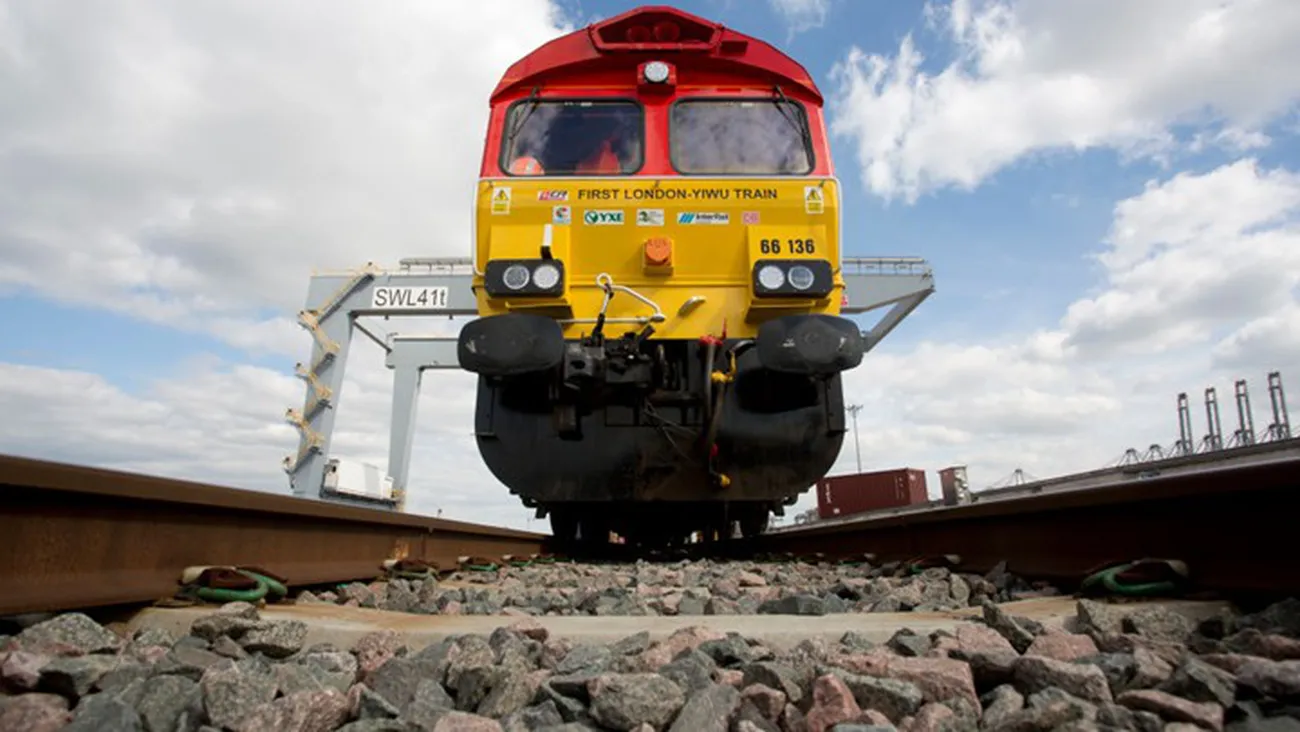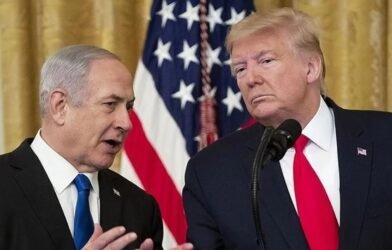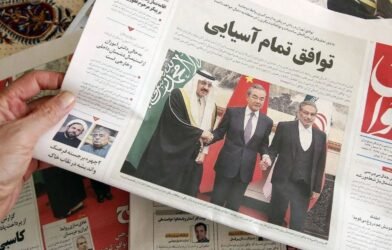Subtotal $0.00
Saudi Arabia and Iran announced the resumption of diplomatic relations and the reopening of embassies within two months, following Chinese-sponsored talks in Beijing, which represents a major shift in foreign policy Chinese Beijing's ambition seems to be to position itself at the forefront of the major powers, based primarily on economic development and strategic expansion in partnership with other countries through initiatives based on stability and mutual benefit.
The backbone of Chinese foreign policy is the initiative launched by Chinese President Xi Jinping in 2013, titled "Belt and Road Initiative"which is based on the idea of Silk Road It seeks to create a China-centered network of interests and infrastructure through a huge series of cross-border and transcontinental development projects, through the establishment of land, sea and rail corridors that move goods in both directions around the world with unified systems and laws, preventing the repeated imposition of customs and limiting the obstruction of the passage of goods, which will contribute to their faster and larger transportation, making it the largest infrastructure project in the history of mankind.
In partnership with more than 100 countries, China has established the Asian Infrastructure Investment Bank (AIIB) to serve this initiative and finance its projects.
It has become clear to anyone who observes China's development in military, economic, technological and social aspects that China's strategy is based on development, trade and economy, while politics comes after that, and that its main tool is the "Belt and Road", through which it works to seduce others that cooperation with China contributes to creating local development, with loans and assistance provided by China to infrastructure projects and public utilities
It has become clear to everyone who observes China's development in the military, economic, technological and social aspects that the Chinese strategy is based on development, trade and economy, while politics comes after that, and that its main tool is the "Belt and Road", through which it works to entice others that cooperation with China contributes to creating local development, with the availability of loans and aid provided by China to infrastructure projects and public utilities, in light of the Western economic weakness and its lack of real competition due to a number of reasons; most notably the Russian-Ukrainian war and the effects of the pandemic, which facilitates the task of the
China is also aware that the United States, which repeatedly draws red lines to Beijing, is pursuing a policy of preparing for a war with it, but it wants it to be an Asian proxy war that drains the Asian continent as the Russian-Ukrainian war is doing to Russia and Europe. It is mobilizing China's rivals against it in strategic groupings, such as Australia, Japan, and India. India realizes that such a war could abort its own chances of becoming a superpower, but it could be different with a strong and stubborn historical rival like Japan.
Of course, what is meant here is not a global war along the lines of World War I and II, but a relatively limited regional war that hinders China's development and prevents it from growing for a long time, with the result that the United States maintains world leadership for many more decades.
There is no doubt that the Russian-Ukrainian war has given China a future model of the ways and means that could be used against it by the United States and its Western allies in a potential war against it, especially with Washington's continuous work to create a strategic cordon around China in South and East Asia to limit its expansion and prepare for the next confrontation with it, which the United States and China realize is only a matter of time.
The Russian-Ukrainian war has given China a future model of the ways and means that could be used against it by the United States and its Western allies in a potential war against it, especially with Washington's ongoing work to create a strategic cordon around China in South and East Asia to limit its expansion and prepare for the next confrontation with it
On the other hand, China has always tried to present itself to the world as a non-colonial, non-expansionist power, with a different approach in its foreign strategy from Western powers that aim to dominate and divide weaker countries, and that the Chinese strategy is based on respect for the privacy of others, non-interference in their internal affairs, mutual benefit and win-win, and it has no doubt created a great deal of credibility in this area.
Through huge partnerships with various countries around the world, especially in the Middle East, China has been able to create a platform of common interests and mutual trust with these countries. It realizes that the expansion strategy, which uses the Belt and Road Initiative as a basic tool, cannot succeed as hoped in an environment of political instability, as it is concerned with making the region between the Sea of Japan and the Mediterranean a relatively calm region, suitable for development and implementation of the initiative's projects, and securing energy sources in the Gulf, the largest energy supplier to Beijing. Therefore, it has started to put forward peace initiatives between the conflicting parties in the Asian continent as the most reliable and neutral guarantor, and that the results of the existing partnerships with China will be greater and more beneficial if peace is achieved between the conflicting parties, which will result in development and economic growth and thus prosperity for these countries, similar to what happened in China in the past decades.
Perhaps the most prominent of these issues that China seeks to resolve are the differences between Iran and Saudi Arabia, because both parties are of great importance to China. Fixing the relationship between them means defusing the Islamic world, which China considers a natural future ally against Western hegemony, and making it more stable and stronger, and polarizing Saudi Arabia and the largest part of the Islamic world, which usually aligns with the Western world, means creating a rift between the United States and its allies, and thus weakening Washington. Any development in relations with the Islamic world, whether between Saudi Arabia and Iran or with Turkey, is a major achievement for Chinese policy at the strategic level.
The vast network of interests that China seeks to weave Both Iran and Saudi Arabia can convince everyone that the losses caused by any war between the two parties are far greater than the desired benefits, especially since the guarantor of this state of stability is China, which could mean - from the Gulf perspective - that there is no need for the American security umbrella. As for Iran, it is concerned with improving its deteriorating economic situation and improving its presence in the Islamic world and its distorted international image as a result of the relative isolation it has been experiencing for nearly 40 years. Both parties are strategically concerned with improving their situation, but this desired improvement in relations will face many difficulties, the most important of which is the harm to the interests of the United States and Israel from this emerging situation.
Stability in the Arab and Islamic region does not only mean that the need for American protection will decrease, but it will also lead to a decrease in the need for normalization with Israel, as there is no meaning to a relationship with Israel as long as the Arab regimes that considered it the gateway to influence in the United States see that its role is severely declining, and Israel today is in a very bad situation internally and externally as well, and any investment or partnership with it is very expensive and doubtful in its results, not to mention that Israel would constitute a free competitor for these regimes, especially for Saudi Arabia, which wants to lead the region. The result is the absence of the Arab need for a relationship with Israel and the decline of the Arab need for a relationship with it.
Although ideological considerations in China these days have taken a backseat, China is essentially a revolutionary regime, and it is fully aware that Israel is a Western colonialist project that will not leave the United States and stand by it in any future confrontation. We will most likely see the Chinese interest in the relationship with Israel diminish over time, because the technological gap between China and the West has already shrunk significantly, due to Chinese technological progress, and thus its need for Israel as a backdoor for smuggling Western technology has diminished
As for China's relations with Israel, which began in the early 1980s, they stem mainly from China's interest in obtaining Western technology, especially military technology, at any cost, in order to minimize the gap between it and the United States, and Israel is the gateway for smuggling this technology to it. China has also invested in some projects in the Israeli occupation, especially the Haifa port, because it believes that it can build railways starting from Oman in the Gulf to the port of Haifa and then to Europe and the rest of the world, as part of the Belt and Road Initiative that we mentioned earlier, but implementing this is a very complicated matter.
Although ideological considerations in China these days have taken a step back, China is essentially a revolutionary regime, and it is fully aware that Israel is a Western colonialist project that will not leave the United States and stand by it in any future confrontation, and we will - most likely - see a decline in Chinese interest in the relationship with Israel over time, because the technological gap between China and the West has already narrowed significantly, due to Chinese technological progress, and thus its need for Israel as a backdoor to smuggle Western technology has diminished, and US pressure on Israel will continue until it forces it to reduce this kind of relationship
It has become a known fact that a multipolar world order is taking shape, and that China has shifted from a state of retreat and neutrality to a state of initiative in foreign policy, based on the economic factor and its major project, the Belt and Road Initiative, in light of the decline of American influence. The urgent question is about the options and future of the Arab and Islamic countries in light of this emerging order and their role in it, especially as all international powers seek to polarize them to their side.











